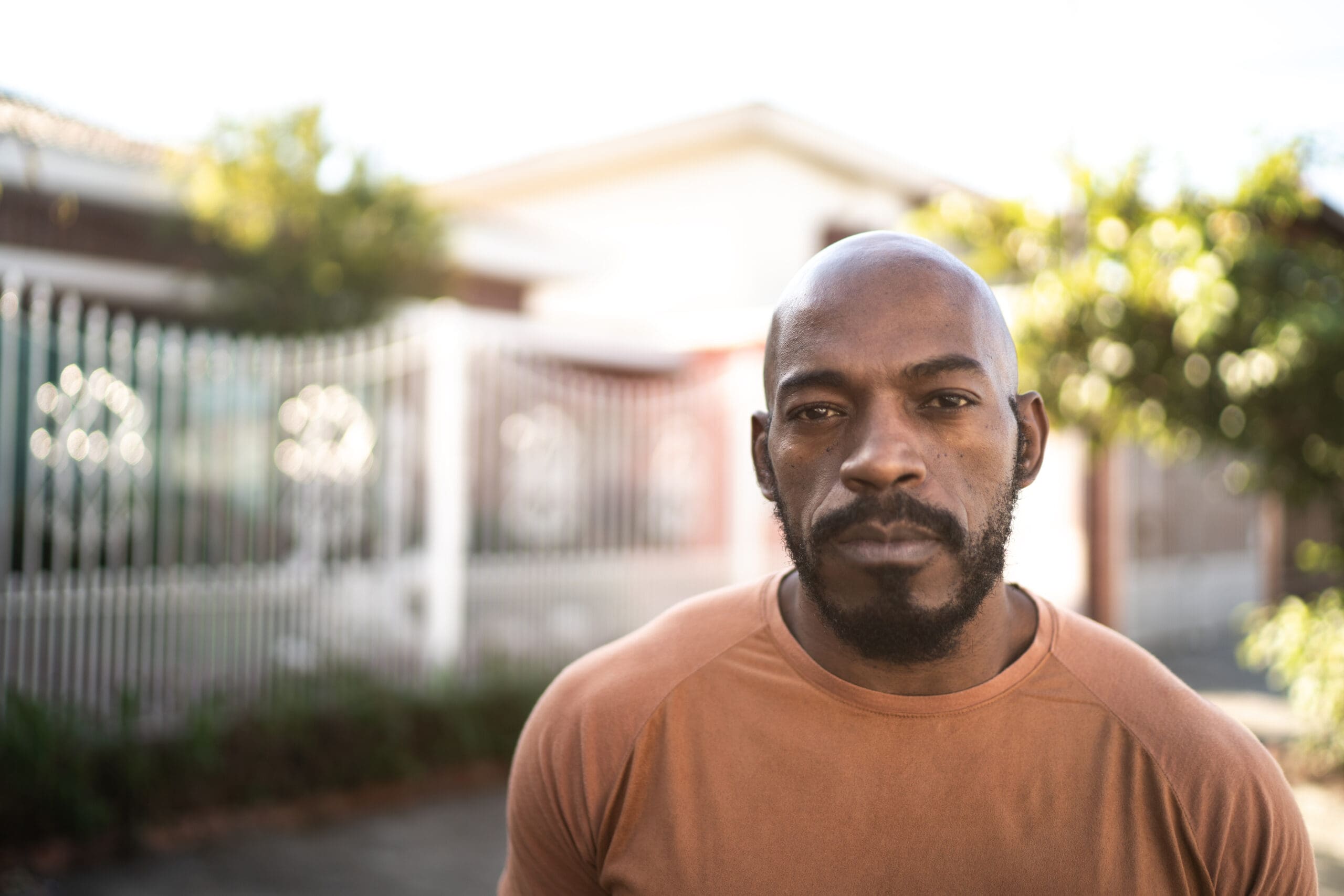Treatment for a broad range of patients
The Right Patient?
One of the most common questions we hear is ‘Which patients could benefit from Buvidal?’
Buvidal is a prolonged-release formulation of buprenorphine, suitable for a wide range of people with opioid dependence.
To show the breadth of people that Buvidal may benefit, we’ve pulled together a series of illustrative cases based on our UK experiences. These are intended to reflect some of the different people you may treat. Of course, due to the complexity of opioid dependence, it’s impossible to represent all cohorts and the individual clinical circumstances of each patient needs to be considered.
Within your own clinic, deciding who is likely to benefit from Buvidal requires a thorough assessment of each person’s needs, their motivations and treatment history.
Example patient profiles
Images and descriptions are for illustrative purposes only and are not actual patients.
Read our guide to helping and understanding which patients could benefit from Buvidal
2. Dunlop AJ et al , Addiction. 2022 Feb;117(2):382-391.
3. Department of Health & Social Care: Oral methadone and buprenorphine: recommendations (Dec 2024)
4. Frost M, et al. Addiction. 2019;114(8):1416-1426.
5. Lintzeris N et al. JAMA Network Open 2021;4:e219041.
6. UKDPC » Getting serious about stigma: the problem with stigmatising drug users (December 2010).
7. Matheson, C.et al Long-acting depot buprenorphine in people who are homeless: Views and experiences. Journal of Substance Abuse Treatment, 108781 (2022).
8. Lofwall MR, et al. JAMA Int Med. 2018;178(6):764–773.
Mum of two
35 year old mother of two children age 4 yrs and 7 yrs respectively. She is currently prescribed daily supervised medication. Her nearest pharmacy is three miles from her flat and the bus service is irregular. She struggles to fit her pharmacy appointments around school and nursery pick-ups and as a result has fallen off-script several times. Her local drug service have given the option of twice weekly pick-ups, but she is worried about storing medication at home.


Prison leaver
45 year old man completing a 2 year prison sentence. He is due for release in 2 months time. Whilst he has been stabilised on methadone within the secure environment and expressed a strong desire to re-engage with work on his release, his keyworker has raised concerns about his welfare as he has no fixed abode or family support, suffers from anxiety and depression and experienced several non-fatal overdose episodes prior to his imprisonment.
With a flexible dosing window, transitioning from a daily medication to monthly Buvidal prior to his release may provide some reassurance, giving the patient the opportunity to focus on other, time critical, aspects of his welfare such as housing and other support. The weeks immediately following release from prison are a high risk period for people with opioid dependence1. Continuity of care is a critical area of focus for those working with patients in secure environments and for those who will engage with them on release. Buvidal is always administered by a healthcare professional and, in the secure environment may minimise the risk of diversion2.
Homeless poly-drug user
19 year old man, kicked out by his parents as a result of his drug-use and now living on the streets of a large city. With no permanent place to stay, he constantly moves around the city trying to find a place in a hostel, or if that doesn’t work out, at least somewhere relatively safe and warm to sleep. He continues to use drugs when he can find enough money to pay for them and the central drug service have identified him as at high risk due to his poly-drug use and the conditions in which he uses. He is on a supervised script that asks him to attend the drug service in the city centre on a daily basis, so they can keep as close contact with him as possible – however his attendance is understandably inconsistent and he’s relapsed on several occasions. He has also been hospitalised twice in the past 12 months due to non-fatal overdose.
With less frequent dosing and a more flexible dosing window, Buvidal has a lower adherence burden than daily medications and may be an important option for patients where strict, daily adherence is made difficult by complex social circumstances. It is important to provide ongoing psychosocial support and medical review for patients on Buvidal.


New to treatment
21 year old woman, started using cannabis at school and has experimented with variety of recreational drugs ever since. She was introduced to heroin a couple of years ago by her boyfriend and in a relatively short space of time her life has spiralled out of control. She had to leave home and dropped out of college. She’s now unemployed and spends her days at her boyfriend’s flat, where he and his friends continue to use drugs on a daily basis. She’s desperate to get her life back and escape the lifestyle she’s found herself living, but she’s nowhere to go and feels increasingly helpless. She’s seen people like her enter treatment, but even then there seems to be an inescapable routine to daily medication that she feels won’t help her to break free from this cycle of drug use. She’s also aware how many people in treatment continue to use drugs on top or end up relapsing completely. This has made her reluctant to enter treatment despite being increasingly desperate to find a way out.
Buvidal is an alternative treatment option to daily methadone or buprenorphine that may appeal to people who want to avoid the regimen of daily medication. A significant portion of people with problematic opioid dependence are out of treatment3. There is strong evidence that medication reduces the harms associated with opioid dependence4 – attracting and retaining patients is a critical and pressing challenge. Buvidal has demonstrated high patient satisfaction and acceptability5.
Long-term stable on methadone
56 year old man, with a history of dependence that spans over thirty years. He’s been stable on a low-medium dose of methadone for well over a decade. He’s married and has an adult son and infant grandchild living abroad – but due to the challenges of travelling with opioid dependence medication he’s yet to meet his grandchild. His prescriber has discussed the possibility of ending his medication as he thinks, with the right support, abstinence is a realistic goal. Whilst the patient shares the same ambition, after struggling with dependency for so long he’s anxious about taking such a significant step at this stage of his life. He describes the medication in combination with his weekly contact with the local drug service as a ‘crutch’ that he relies on even though he knows it inhibits his freedom to some extent.


Opioid analgesic dependence
40 year old woman who became addicted to prescription painkillers following injuries she sustained in a car accident. After diagnosing her dependency, her GP referred her to the local drug service, where she was prescribed daily sublingual buprenorphine. The GP learns that the woman has missed several appointments recently and is concerned she may drop out of treatment. When the GP raises her concerns, the women explains that she dreads the appointments because of a fear of being spotted by someone she knows. She also mentions that she sometimes feels intimidated by some of the other patients.
Patients can find attending a drug treatment service a difficult experience that makes them feel stigmatised, regardless of the help they can provide6. A long-acting treatment reduces the need for frequent visits to a drug service or pharmacy, thereby may offer patients a more discreet treatment alternative.
Working dad
42 year old father who, after almost a decade of struggling with heroin dependence, has been able to stabilise on daily treatment with wraparound support from his local drug service. He’s made sufficient progress that he’s been able to secure a full-time job at a local factory. Despite his drug service supporting him to reduce his pick-ups to bi-weekly and scheduling them at the end of the day after his shift has finished, he’s still missed several appointments. He’s also had to turn down overtime and is concerned this doesn’t create a great impression with his employer, let alone the lost extra income that could make a real difference to him and his family. To make matters worse, he bumped into a colleague at the pharmacy during his last pick-up and is concerned that the information could get back to his employer and jeopardise his job just at the point he is really trying to escape from his past.
By eliminating the need for regular bi-weekly medication pick-ups, people may have the flexibility to engage with work or other activities that are beneficial to them and their families and that help build recovery capital. For people concerned about confidentiality and stigma, Buvidal may offer a more discreet treatment option compared to frequent visits to a drug service or pharmacy.


Relapsing patient
38 year old man, who has cycled in and out of treatment multiple times over the past 15 years. Whilst he’s expressed a genuine desire to get on top of his drug use once and for all, every time he shows signs of making progress, he seems to relapse. His keyworker is aware that he doesn’t have much support around him and that the people within his social circle are mainly those people he sees at the drug service itself or at the pharmacy where he gets his bi-weekly pick-ups. He has joked in the past that his dealer seems to know his appointment schedule better than he does, as he always seems to be waiting across the street.
It can be difficult for patients to ‘break-free’ of the cycle of drug use when they’re coming into regular contact with other drug users and drug dealers7. Buvidal changes the routine of daily medication and could give patients the opportunity to focus on other aspects of their recovery and daily lives.
Male adolescent
A 17 year old youth, with a history of drug use since his early teens. Having spent much of his life in foster care, he has had little stability in his life to date and recently spent several months living on the streets. Social Services have now been able to provide him with accommodation where he’s also accessing rehabilitation support. His counsellor is pleased with the progress he’s making and they’ve disussed the possibility of him starting a vocational college course next term. But the young man has a tendency to re-use opiates when past traumas resurface. It’s been suggested he should, therefore, start daily OST. However, his counsellor is concerned that such an intervention could interfere with his studies.
Buvidal is intended for use in adults and adolescents aged 16 years or over. Administered weekly or monthly, its long-acting properties may provide both the stability and flexibility to help people engage with purposeful activities, such as education, without the restrictions of a daily medication routine.

Images and descriptions are for illustrative purposes only and are not actual patients.

